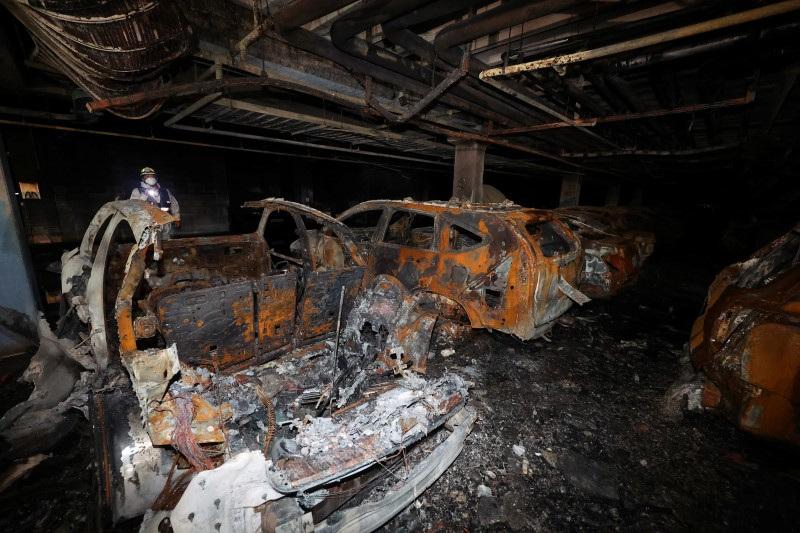Mercedes-Benz Korea disclosed its electric vehicle (EV) battery supplier on Aug. 13 after one of its cars exploded in a parking lot earlier this month.
On Aug. 1, in the underground parking lot of an apartment building in Incheon, west of Seoul, a Mercedes-Benz electric car burst into flames and caused a large fire that damaged or destroyed 140 cars and damaged the building. Some residents were forced to move to shelters.




